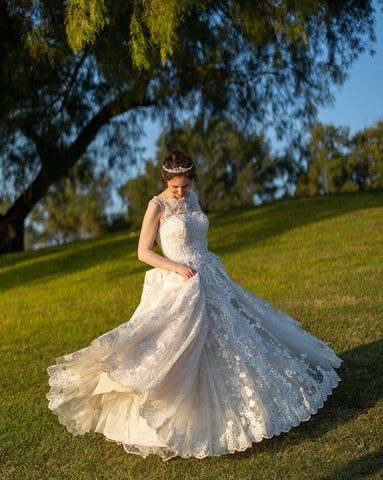Sweetness Is a Social Outcast: How to Choose the Path of the Little Flower and Cinderella

“Become who you are.”
— Pope Saint John Paul II
— Pope Saint John Paul II
In today's world, many teenagers and young adults are susceptible to secular values. Solid catechesis is more important than ever. Yet the rejection of the teachings of our faith is not always a blatant exercise. For our youth to be engaged in their faith in both mind and heart, for secular values to truly be rejected, the crib of the Christ child must not be forgotten.
I have often found myself pondering over a recent trend in our society: It is no longer popular to be "sweet."
By "sweet," I do not simply mean "nice." Being "nice," in a certain sense of the word and in some contexts, is still relatively accepted. But being "sweet" is something else altogether. It is a particular brand of kindness, a Little Flower essence of spirit, that is difficult to define directly because it doesn't really have a synonym. Nevertheless, I would say that it relates to an innocent joy, an ability to see Beauty for what it truly is, and, finally, to address others from that perspective. Yes, it can often be wide-eyed and dreamy, but that does not mean that it is detached from reality, nor that it is that way always, all the time.
Most of all, sweetness—in its true form—is genuine.
As alluded to before, we see this so profoundly in our "true little sister for all eternity," St. Thérèse of Lisieux. Yet it is not absent from works of fiction, particularly the classics. With National Tell a Fairy Tale Day just last week, perhaps it is fitting to mention that I'm convinced St. Thérèse would be close friends with Cinderella, as portrayed by Lily James in the marvelous 2015 film.
I am always struck by how beautifully Lily James portrayed the sweet innocence of the title character. It was not feigned or sugary sweet, but . . . authentic and real. In it was found quiet strength. What a departure from movies today, where such a thing is, if not ridiculed, certainly not presented with the depth that it holds! Likewise, the prince exemplified a true noble and chivalrous spirit. He was not the one-dimensional cutout that today's audiences have painted characters such as he rather than filling in the blanks.
The relationship between Ella and Kit was, as a result, nothing short of beautiful. I loved how the depth behind an "at first sight" connection was conveyed in the film rather than resorting to the easy way out of just making fun of what we can't understand. Given the way that they get to know each other in merely that first encounter, I feel that, more than any other movie I have seen, it demonstrates that love at first sight is not only possible, but profound rather than superficial. It may not be a common occurrence, but, if it were to happen at all, it would be with those such as these two. Perhaps the reason that is so is because both Cinderella and her prince are so pure and open of heart that they understand each other directly and truly from the start rather than behind the mask of pretense and cynicism. Like the individual characters themselves, it was a wonderful surprise to see a pure and sweet relationship between two thoughtful young people presented in such a positive light.
You see, I have this theory that many in our world have inner sweetness deep within, but some cover it with masks. Masks of cynicism and edginess. Masks of self-imposed 'attitude' that serve as a tacky replacement for the genuine spunk they have forgotten (but don't have to lose). Masks of condescending superiority. Masks of superficial charm. Masks of deceptive appearances. Masks of false versions of themselves. They remain entrapped by a prison that they have created for themselves. For, if they are unable to embrace their ability to be sweet, they cannot completely embrace their true self. Their authentic self. And the more they bury their identity, the farther away from themselves—and reality—they become.
It has been said to not lose your child-like sense of wonder, but closely related to that—and often forgotten—is the thought that you should also not lose your child-like sweetness.
Child-like and childish are opposites. Even when society decides to ridicule the former under the pretense that it is a synonym for the latter.
So, to those—especially the young—who are worried that being sweet might make you seem "uncool," don't. Would you rather dance in the sunlight or zig-zag in a frenzied scramble of artificial light that only feigns the appearance of sunlight? I think you know the better option.
After all, in the words of St. Catherine of Siena, “If you are what you should be, you will set the world ablaze!”
Similarly, if our youth are to understand this, we, as adults who have traveled a longer and, in many instances, wearier path, cannot set an example for such a philosophy if we do not live it ourselves. If we don’t seek our true selves.
As we move towards Easter, let us also not forget Christmas. Let us gaze upon the Christ child. Let us not forget the sweetness of His countenance. Let us learn to embrace unfiltered sweetness. Let us cast aside our masks and dance in the Light.
Loading Comments





